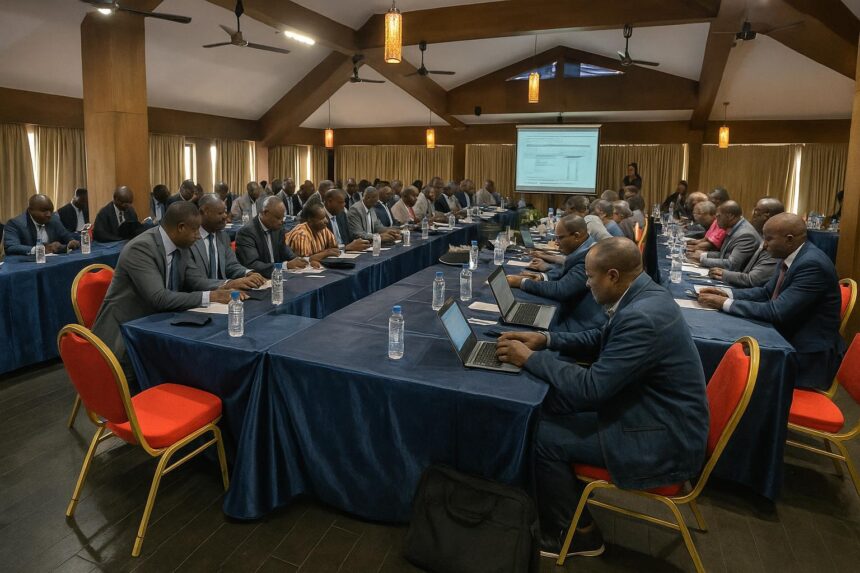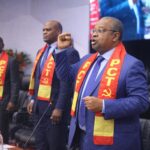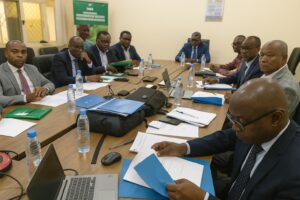Transparency Drive Expands Scope
Independent administrator Karim Lourimi opened Brazzaville’s workshop by unveiling the scope of Congo’s 2023 EITI report, a map that now stretches beyond revenue flows into environmental footprints and anti-corruption safeguards. The move echoes the government’s stated aim of deepening accountability across the mining, oil and forestry sectors for citizens.
Participants from key ministries, tax agencies and state auditors listened as Enerteam consultants explained how every franc collected, transferred or retained must be reconciled against company declarations. According to organisers, rigorous verification can help protect vital public investments without discouraging the private capital Congo still actively courts today.
New EITI Standard Explained
The 2023 EITI Standard, adopted in Dakar last June, widens disclosure requirements to cover contract terms, commodity trading and gender balance in sectoral employment. Lourimi praised Congo-Brazzaville’s “front-runner posture,” noting that the country reported beneficial ownership years before many larger producers adopted similar practices under the old code.
Under the upgraded template, companies will also specify greenhouse-gas volumes from operations, social investments negotiated with communities and any payments routed through third-party traders. Officials believe the broader lens will help citizens link extraction to daily realities, from road maintenance to classroom construction in rural and urban districts.
Data Collection Timetable
The Brazzaville session marked the formal start of data collection. Entities now have six weeks to complete electronic forms, after which Enerteam’s auditors will cross-check entries and request clarifications. Peer-review meetings are planned for mid-November to ensure discrepancies are resolved well before the December publication deadline is met.
Congo’s Permanent EITI Secretariat has promised real-time feedback through a secure online portal, a first for the initiative in Central Africa. The tool allows focal points within ministries to monitor submission rates, reducing the last-minute rush that historically weakened data quality and public confidence in earlier reporting cycles.
Government, Firms and Civil Society at the Table
Around fifty delegates filled the hall, including representatives from TotalEnergies, China National Oil and Forestière Nouvelle. Civil-society observer Bienvenu Moussoua welcomed the inclusive format, arguing that shared training sessions create a “level field” and curb misunderstandings that once fuelled mismatched figures between companies and treasury in past rounds.
Finance ministry director Clarisse Ondongo said the workshop demonstrates the state’s partnership approach. “We are not here to police but to partner,” she told reporters, adding that transparent data can reassure lenders evaluating Congo’s progress under the IMF’s extended credit facility and recent domestic bond issuances announced in July.
Environmental and Anti-Corruption Focus
One innovation widely applauded is the integration of environmental payments, such as reforestation levies and gas-flaring penalties, into the reconciliation matrix. Analysts say the step aligns Congo with global expectations following COP27 and may unlock green-finance windows attached to verifiable carbon-reduction projects sought by local climate start-ups soon.
The forms also require officials to declare any gifts or facilitation fees over 10,000 CFA francs. Although such disclosures have existed since 2019, the lower threshold reflects lessons from regional peers. Anti-corruption agency director Nicolas Massamba called the change “a practical deterrent against petty secrecy” during a brief interview.
Pointe-Noire Session to Follow
A companion workshop is scheduled for 4 September in Pointe-Noire, the economic capital where offshore operators dominate. Organisers expect a larger turnout, given that most hydrocarbon revenues originate there. The agenda mirrors Brazzaville’s, but extra time is reserved for shipping agents and customs brokers handling crude export manifests daily.
Local civil-society coalition RACOP will livestream the session, extending outreach to fisherfolk who often feel detached from policy events in the capital. Observers note that digital participation fits the government’s broader e-governance strategy, promoted in last month’s launch of the National Digital Transformation Plan by Prime Minister Anatole.
International Context and Past Progress
Congo joined EITI in 2004 and was judged “satisfactory” in its 2021 validation, placing it among a handful of African states meeting all requirements. The upcoming report will be the first assessed under the stricter 2023 rules, a test many stakeholders say Congo can pass with coordinated effort.
Previous disclosures helped clarify that the petroleum sector contributed 49 percent of state revenue in 2022, while mining and forestry added 7 percent combined. Economists credit the transparency drive with improving debt-management dialogue with creditors, who increasingly demand verified figures before negotiating relief or refinancing packages for major infrastructure projects.
Outlook for December Release
If deadlines hold, the 2023 report will be published just before year-end festivities, offering citizens fresh data alongside the finance bill debate in Parliament. Civil-society leaders plan media briefings to translate technical tables into plain-language stories about tax collection and social-investment commitments promised for schools and health posts.
Lourimi remains optimistic. “What matters is that every actor owns the numbers; reconciliation alone is not enough,” he stressed as the session closed. His words captured a wider sentiment that transparency, when jointly managed, can reinforce stability and attract investors who value rule-based governance across all resource corridors.






















